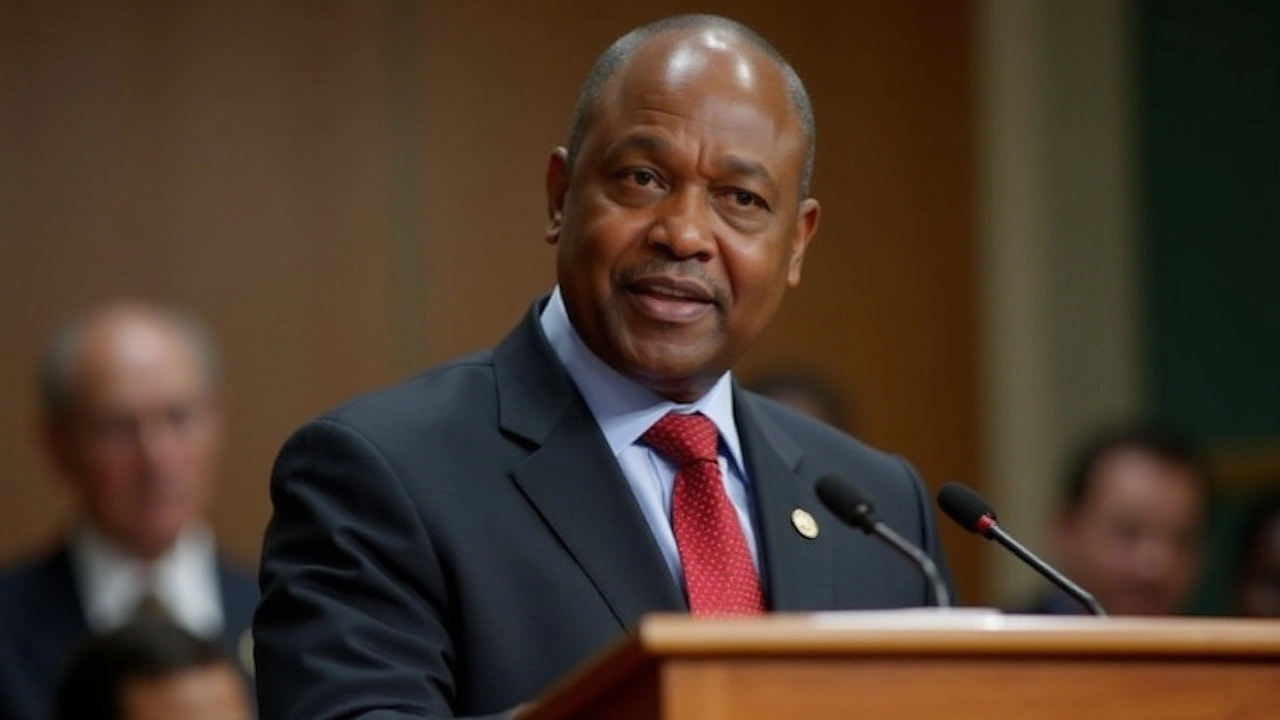Historic Shift in Botswana: Opposition Topples Decades-Long Rule, Sparks New Hope

Unprecedented Political Shift in Botswana
Botswana's political scene has experienced a monumental shift as the Botswana Democratic Party (BDP), which has been the nation's ruling party for an uninterrupted 58 years, conceded after losing its parliamentary majority. This election result is a historic pivot point, representing a loud voice of change from the nation's electorate. The Umbrella for Democratic Change (UDC), a coalition led by attorney Duma Boko, emerged victorious and is likely to see Boko assume the presidency, marking a new era in Botswana's governance. The election signifies a significant moment, paralleling changes seen across the region, where longstanding political establishments face growing challenges.
The Rise of the Umbrella for Democratic Change
The UDC, under Boko's leadership, capitalized on a growing wave of socio-economic discontent that resonated especially with the younger electorate. His campaign focused sharply on urgent issues such as raising the minimum wage and increasing social welfare, reflecting the widespread socioeconomic challenges that the nation has been grappling with. The opposition's effective mobilization and strategy have proven that even the most entrenched political parties are not immune to the demands for progress and change from their populace. The UDC's victory is not just a win for the party but a signal of Botswana's readiness to embrace a new political chapter.
Challenges Underpinning BDP's Decline
Several factors contributed to the unexpected collapse of the BDP's dominance. The global decline in diamond demand, which is a critical component of Botswana's economy, resulted in a notable decrease in economic growth. Coupled with high unemployment rates, which peaked at 28%, citizens were left frustrated and eager for change. Many young Batswana, bearing the brunt of economic stagnation and lack of job opportunities, were pivotal in this push for political transformation. The BDP's failure to adequately address these growing concerns ultimately led to their loss of favor among voters.
A Peaceful Transition Amid Hopes for the Future
Despite the dramatic shift in political power, Botswana's capital, Gaborone, remained peaceful, setting a positive example of electoral and political maturity. Small groups of UDC supporters took to the streets in celebration, reflecting their hope and anticipation for the future. Among them was Mo Mogosi, a 23-year-old student, who expressed his disbelief and excitement at witnessing this historic shift in his lifetime. "It feels like a new dawn," he declared, attributing the change not just to the voting tables but to a collective desire for advancement and renewal.
Regional Implications of Botswana's Elections
This seismic shift in Botswana wasn't solely a domestic affair; it holds significant implications for the broader southern African political landscape. Botswana now joins South Africa, where the African National Congress faced a similar setback this year, having lost its parliamentary majority after decades of control. This regional trend showcases rising public dissatisfaction with long-serving governing parties and signals a broader demand for political accountability and economic reforms. Neighboring countries like Namibia, where upcoming elections may further test the durability of entrenched political elites, closely watch these developments.
Africa analyst Znabosen from Pangea-Risk has noted that Botswana's elections serve as a poignant reminder and a wake-up call to ruling parties across Africa. Without tangible improvements in economic conditions and meaningful job creation, political dominance may be increasingly at risk. This message reverberates not just within Botswana's borders but across the continent, encouraging a reevaluation of policies that prioritize economic development alongside maintaining political power.
What Lies Ahead for Botswana?
With the BDP conceding and the UDC preparing to lead, many wonder about the path forward for Botswana. Duma Boko and his coalition face the challenge of fulfilling election promises amid economic difficulties and high public expectations. Observers will be keenly watching how Boko's administration addresses pressing issues like unemployment and economic diversification, particularly in reducing the over-reliance on diamond exports.
Yet, there's a palpable sense of optimism among many citizens. The peaceful transition of power has renewed faith in Botswana's democratic processes and its capacity for reinvention. This election has underscored the power and agency of the Botswanan people, and their hope for a better future under new leadership. The task ahead is monumental, but the spirit of change and progression that carried the UDC to victory holds promise for this new chapter in Botswana's journey.